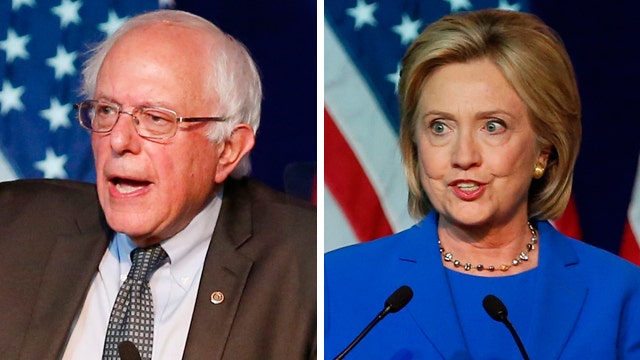Bernie Sanders closing in on Hillary in Iowa polls
Clinton’s lead over Sanders narrows to just seven points
Surging Democratic presidential candidate Sen. Bernie Sanders on Sunday avoided taking swipes at primary front-runner Hillary Clinton and instead touted his campaign, following the weekend release of a poll showing him closing on her in Iowa.
“People are responding to our message,” the Vermont Independent told ABC’s “This Week.” “The polls that I saw said that there was massive enthusiasm for the message that we're delivering and that the vast majority of the people who are voting for me in that Iowa poll … are not necessarily anti-Hillary Clinton, they're pro-Bernie Sanders.”
Clinton remains the first choice of 37 percent of likely Democratic caucus-goers in Iowa, the first state to hold a primary vote. And Sanders is the pick for 30 percent, according to the Des Moines Register/Bloomberg Politics Iowa Poll released Saturday.
The poll also shows that Clinton has lost a third of the support that she had in May and that her support among Democrats has for the first time dropped below 50 percent.
The most recent Iowa Poll, in May, had Clinton leading the Democratic field with 57 percent, followed by Sanders at 16 percent.
Sanders on Sunday tried to stick with the message that is boosting his poll numbers and bringing large crowds to his campaign stops -- better wages and more affordable education for the working class.
“This is pro-Bernie Sanders and a message that says, 'enough is enough,' " he told ABC. “This country and our government belong to all of us, not just a handful of very wealthy people.”
The 73-year-old Sanders, a self-proclaimed Socialist, also defended himself against criticism that he so far has focused too little on foreign policy and national security.
“We’ve only been in the race for three months,” he said. “We are going to spend more time on that.”
Sanders said he made the correct decision in voting against the war in Iraq because the aftermath led to destabilization across the region but argued he supports military force as an essential component of foreign policy.
“Using the military is always an option, but it’s the last option,” he said. “I believe the United States should have the strongest military in the world.”













































